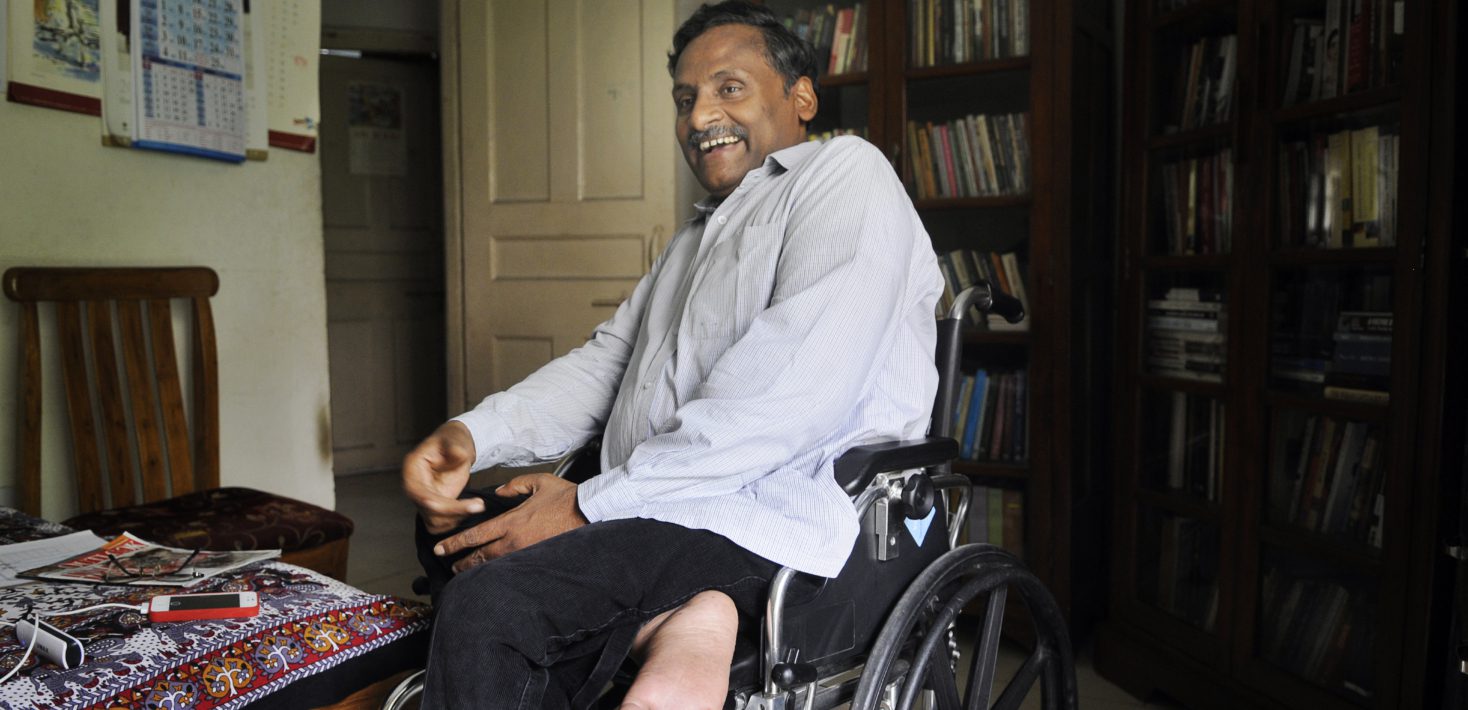Responding to the news of activist and Delhi University professor Gokarakonda Naga Saibaba’s re-acquittal by the Bombay High Court today after being in jail for more than seven years under the draconian Unlawful Activities Prevention Act (UAPA), Aakar Patel, chair of board at Amnesty International India, said:
“The re-acquittal of G.N. Saibaba today is again a positive development and triumph of justice over continued repression. He should have never been jailed in the first place. His previous 2022 acquittal should never have been reversed too. The Indian authorities have targeted him solely for having spoken out against the violence and discrimination faced by the Dalit and Indigenous communities in India.
“Amnesty International has documented how the Indian authorities routinely use the anti-terror law UAPA with stringent bail provisions as a tool to intimidate, harass and target activists like G. N. Saibaba who are perceived to be critical of the authorities.
“The Indian authorities must honour their international human rights obligations by providing a safe and supportive environment in which human rights defenders and activists can carry out their work without fear of reprisals. Amnesty International calls for the immediate and unconditional release of all the other human rights defenders and activists who continue to be arbitrarily detained solely for peacefully exercising their right to freedom of expression and fearlessly standing up for the rights of the marginalized.”
The re-acquittal of G.N. Saibaba today is again a positive development and triumph of justice over continued repression.
Aakar Patel, chair of board at Amnesty International India
He should have never been jailed in the first place.
Background:
The Nagpur bench of the Bombay High Court today acquitted former Delhi University professor GN Saibaba and five others who were accused of links with banned Maoist organisations. One of the five, Pandu Narote, has already died in prison.
In 2022, the Bombay High Court had acquitted the Professor but the Supreme Court set aside the acquittal order and remanded the matter back to the High Court for fresh hearing.
G.N. Saibaba was initially arrested by the police in 2014 and accused of links to banned Maoist organisations. In March 2017, he was convicted by a sessions court in Gadchiroli, Maharashtra under the Unlawful Activities Prevention Act (UAPA) and sentenced to life in prison.
G. N. Saibaba has a disability due to polio and other severe health issues including a heart condition. His health had suffered a serious deterioration exacerbated by his detention conditions and lack of access to adequate medical care. He contracted Covid-19 twice in jail, in January 2021 and in February 2022.
In June 2022, Amnesty International and six other international human rights groups had in a joint statement called for the immediate release of G. N. Saibaba.


